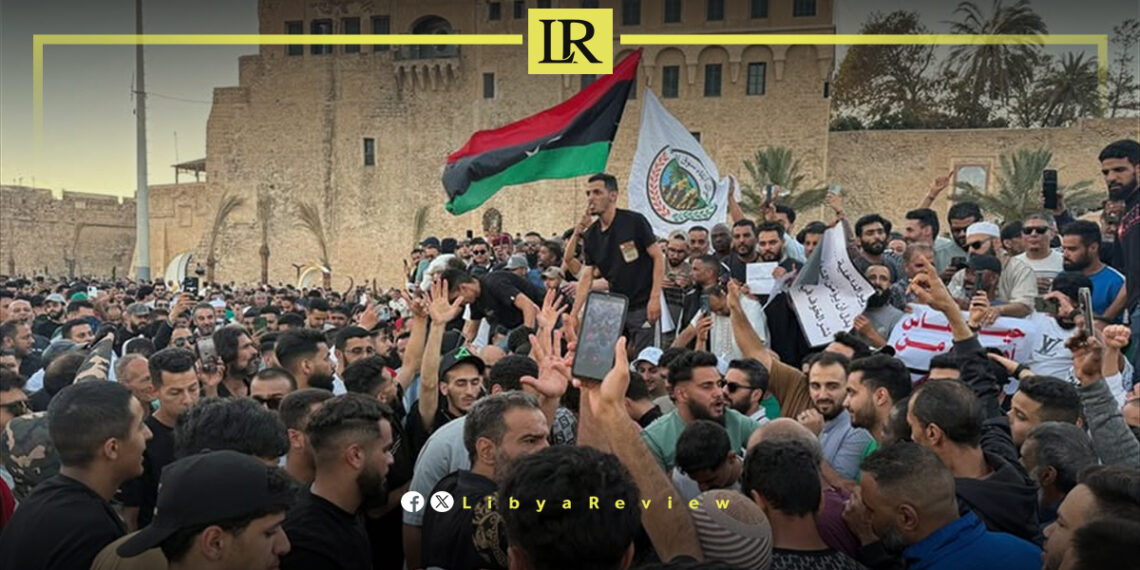The Municipality of Souq Al-Jumaa in the Libyan capital Tripoli has officially announced the launch of an open and comprehensive civil sit-in, demanding the immediate resignation of the Government of National Unity led by Abdel-Hamid Dbaiba.
The declaration was made through a statement issued by a group identifying as the “Free People of Libya,” accusing Dbaiba’s government of committing severe abuses, including the spilling of Libyan blood and the use of force against its own citizens.
The statement described the silence toward these acts as unacceptable and insisted that retreat is no longer an option. It further emphasized that the protest movement has already begun across several parts of Libya, especially in Tripoli, and will not end until the Presidential Council takes decisive action to dismiss what protesters have labeled a “reckless and lawless” government.
Organizers of the sit-in warned that any attempt by any party to obstruct or suppress this peaceful movement would be held directly accountable and considered a partner in the “crimes of the government and the shedding of Libyan blood.”
This announcement comes amid growing popular anger in Tripoli and surrounding areas, as political and public voices increasingly call for a new transitional phase and a clear roadmap to restore stability in Libya.
Libya has been in chaos since a NATO-backed uprising toppled longtime leader Muammar Gaddafi in 2011. The county has for years been split between rival administrations.
Libya’s economy, heavily reliant on oil, has suffered due to the ongoing conflict. The instability has led to fluctuations in oil production and prices, impacting the global oil market and Libya’s economy.
The conflict has led to a significant humanitarian crisis in Libya, with thousands of people killed, and many more displaced. Migrants and refugees using Libya as a transit point to Europe have also faced dire conditions.
The planned elections for December 2021 were delayed due to disagreements over election laws and the eligibility of certain candidates. This delay has raised concerns about the feasibility of a peaceful political transition.
Despite the ceasefire, security remains a significant concern with sporadic fighting and the presence of mercenaries and foreign fighters. The unification of the military and the removal of foreign forces are crucial challenges.


